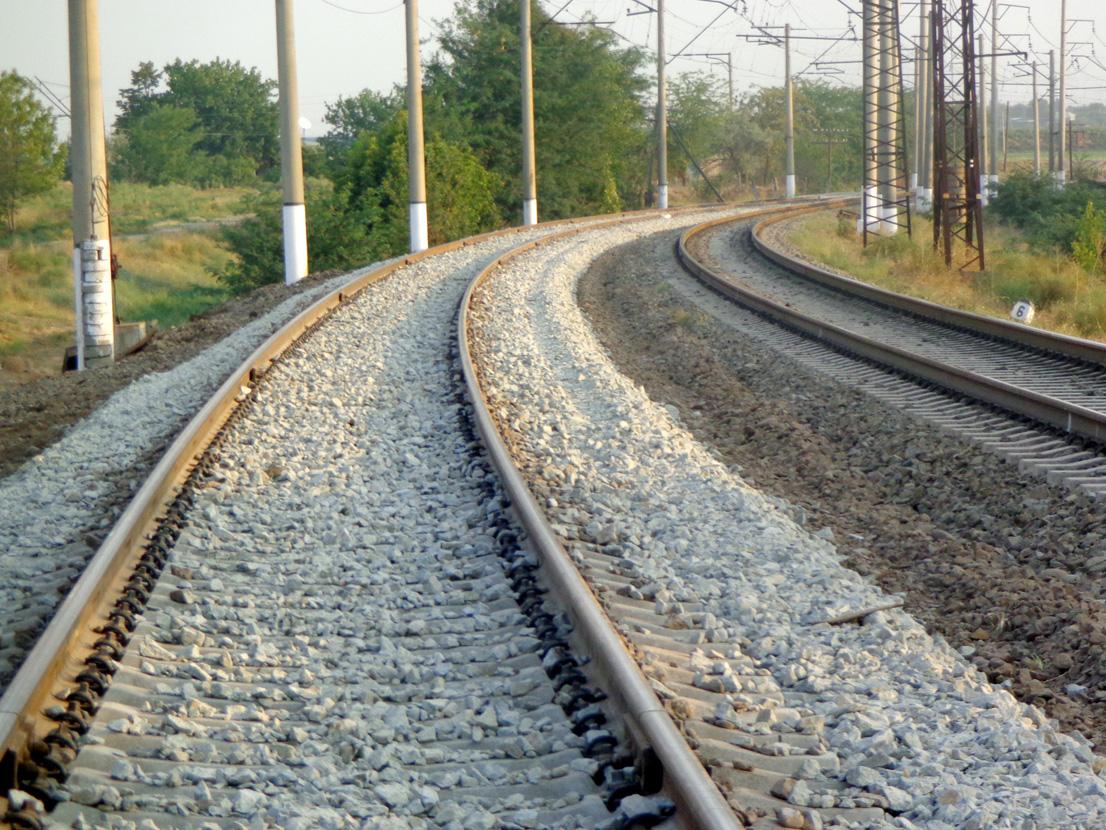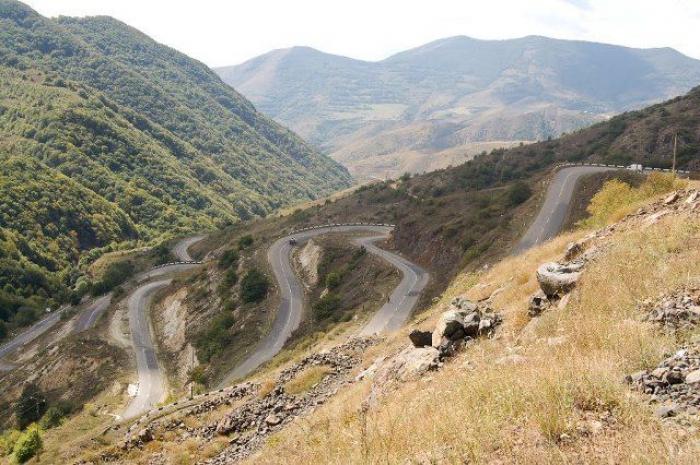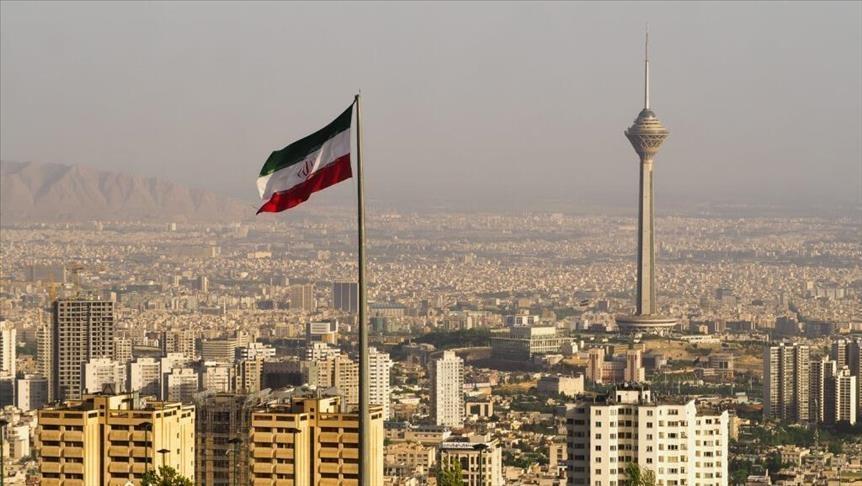Geopolitical factor increases interest in Azerbaijan’s Zangazur corridor Caliber.Az analysis
The sanctions confrontation between the West and Russia has greatly damaged the transport and logistics schemes that have been created for decades on the Eurasian continent. Today, both the Russian Federation and the EU are looking for alternative routes to ensure cargo transportation in eastern and southern directions. At the same time, both conflicting sides are striving to use Azerbaijan’s transport potential, which is optimal for solving these tasks.
The Iranian side has recently announced during the meeting of the co-chairs of the International North-South Transport Corridor (INSTC) in Tehran that it was speeding up the construction of the railway component of the corridor.
In turn, the construction of the infrastructure of the Zangazur corridor, in particular, the Horadiz-Aghband railway line, has been accelerated in Azerbaijan. Success in this sphere was demonstrated during Azerbaijani President Ilham Aliyev’s trip to the Jabrayil district on May 26, 2022.

The geopolitical crisis caused by the war in Ukraine, which has been going on for three months, has qualitatively changed the transit and logistics situation in Eurasia.
It is also clear that Azerbaijan is becoming a key beneficiary of these changes, as the number of applications from forwarders and logistics companies of Europe, Central Asia, Russia, Iran, China, as well as Japan, making initiatives to establish transit routes throughout Azerbaijan, and has greatly increased recently.
“Although Azerbaijan is a landlocked country, located at the junction of East and West, North and South, we have turned it into an important transport hub. Proceeding from the advantages of the geographic position, the entire transport network, namely, a seaport, railway, several international airports, roads have been diversified," Azerbaijani President Ilham Aliyev said during the recent Azerbaijani-Lithuanian business forum, stressing that many new proposals for the use of Azerbaijan's transport infrastructure have been recently received from several countries.
President Aliyev added that today Azerbaijan is a transit hub for the South Caucasus, Central Asia, and the Caspian Sea region as a whole.
Zangazur corridor plays a special role in the development of promising transit routes through Azerbaijan. By linking the main part of Azerbaijan with the Nakhchivan Autonomous Republic, the Zangazur corridor will simultaneously create a new transport alternative for expanding and diversifying international cargo transportation.
Taking into account the negative geopolitical changes due to the war in Ukraine and the urgent need of the regional countries for alternative trade and transport corridors, the construction of the Zangazur corridor has been extremely accelerated recently.
In particular, this refers to the laying of the 110.4-kilometre railway segment of the corridor passing through Azerbaijan, which is being constructed by Turkish companies through the support of local contractors.
The entire work should be completed in late 2023, the Azerbaijani government has already allocated 312.7 million manats ($183.9 million) for this purpose, and if necessary, this amount will be increased, given the strategic importance of the corridor.
President Aliyev, who visited the Jabrayil district and took part in the foundation laying ceremony of the Soltanly station, has recently viewed the construction process of the Horadiz-Aghband railway line which covered more than a year.
The president was provided with detailed information on the large-scale work carried out at other railway construction sites.
According to the information published recently by the Working Group on Transport, Communications and High Technologies of the Interdepartmental Centre operating under the Coordination Headquarters, established to address issues in the Karabakh region liberated from occupation, 90 per cent of the work within the first stage of construction of the Horadiz-Aghband railway line (on a 35-kilometre-section) has been carried out.
A 55-kilometer railway line is being rapidly built as part of the second phase of the project, which is being implemented simultaneously. A tunnel, 15 bridges, seven overpasses and Soltanly, Gumlag, Khakari and Minjivan stations are planned to be built on this railway section.
Some 28 per cent of earthwork has been carried out, 33 per cent of facilities have been built, and the track infrastructure has been laid at 20 per cent of the section as part of the second stage.
Currently, trains, transporting the necessary materials, equipment and workers run between Horadiz and the stations and other facilities which are under construction.
Tasks have also been outlined for the third stage of construction.
Nine stations, 41 bridges, three tunnels and three galleries, seven overpasses and about 300 engineering structures will be built on the 25.4-kilometre segment connecting Minjivan with Bartaz and Aghband stations.
The president viewed the construction of the 123.6-kilometre Horadiz-Jabrail-Zangilan-Aghband highway, another component of the Zangazur corridor during his visit to the Fuzuli district on May 26.
The highway, which is being rapidly laid in parallel with the railway, is planned to be commissioned in 2024.
The first 77 kilometres of the highway will be six-lane, and the remaining 46.6 kilometres - are four-lane. Some 14 bridges, three overpasses and 38 underpasses are being built.

Azerbaijan is interested in the timely completion of the construction of the infrastructure of the Zangazur corridor, which will restore the transportation routes of the Nakhchivan Autonomous Republic, and will also become the shortest route for expanding trade turnover with Turkey.
Central Asia, Russia, Iran, China and the EU countries are greatly interested in putting this corridor into operation.
National secretary of the Intergovernmental Commission (IGC) of International Transport Corridor Europe-Caucasus-Asia (TRACECA), Rufat Bayramov, has recently noted that the Zangazur corridor opens up great opportunities for Azerbaijan in the terms of transit cargo transportation from Europe to Central Asia and China and back.
Bayramov noted that the communications in the liberated territories will contribute to the growth of the country's transport potential, which is extremely important given the expected sharp increase in the flow of transit cargo.
Thus, the expert added that according to TRACECA forecasts, in the current geopolitical situation, container cargo transportation from China to Europe and back through Azerbaijan as of 2022 will increase by three to five times compared to the previous years.
Such forecasts are quite justified, given the plans of Azerbaijan and Turkiye, which have concluded an agreement on preferential trade and plan to increase their trade turnover to $15 billion in the next few years.
Cargo carriers from Central Asia, who are also extremely interested in the shortest routes in the direction of Turkiye, plan to join the Zangazur corridor soon.
Such products as cotton and textiles, ore concentrates, fertilizers, chemical and food products, etc. could be transited by Central Asian countries through the new corridor. Moreover, besides China, another Asian industrial giant, Japan, is also ready to join the transit corridor through Azerbaijan.
The Nippon Express global logistics company (NX China) has recently launched a new intermodal service for the transportation of goods from different parts of China through the Caspian Sea to Europe, bypassing Russia.
The new bypass railway corridor will be connected to TITR and run through Kazakhstan, Azerbaijan, Turkiye and further to Europe, and of course, the Zangazur corridor can also become the best option in terms of time and speed of cargo transhipment.
Iran and Russia, also interested in the new corridor, have planned to greatly increase cargo transportation within INSTC by using Azerbaijan’s transit opportunities.
Therefore, a memorandum of understanding, envisaging the creation of a transport route between the East Zangazur economic region of Azerbaijan and the Nakhchivan Autonomous Republic through Iran, in particular, the construction of a 55 kilometre highway, as well as Imishli (Azerbaijan) - Parsabad (Iran) railway line, was signed following the 15th meeting of the Azerbaijani-Iranian intergovernmental commission on March 11, 2022.
This project is not planned to be postponed. President Ilham Aliyev signed a decree on April 5, 2022, approving the memorandum. Designing, financing and other pre-construction work, which are expected to be completed within six months, are underway.

Apparently, Iran is also speeding up all work along the INSTC.
Iranian Oil Minister, Javad Oji, has said that its full operation is scheduled for the second half of this year. The trade turnover between Iran and Russia is planned to increase from the current $4 billion to $40 billion in a year and a half in accordance with the reached agreements and programs.
The minister noted that a special working group has been created under the Ministry of Roads and Urban Development to optimize this work in Iran. Among its tasks are to improve the Rasht-Astara railway, and speed up resolving the issues related to the connection of the railway with ports in the Persian Gulf.
Similar tasks during a recent meeting of the INSTC co-chairs in Tehran were announced by Deputy Prime Minister of the Russian Federation Alexander Novak.
“Today the volume of transportation along the corridor is about 15 million tons, which over the next 3-5 years can grow to 30- 50 million tons of cargo,” Novak added.
The Russian deputy prime minister also stressed the extreme importance of the rapid implementation of the Rasht-Astara project, the construction of this railway section will eliminate narrow sections hampering the expansion of transportation volumes.
This moment is extremely important for Azerbaijan as the creation of a through railway with Iran will enable to fully use the transit potential of our country within the INSTC. However, the plans of laying a route along the Zangazur corridor and further through the Julfa junction to the Nakhchivan Autonomous Republic are also promising to transit cargoes to Iran via railway.








